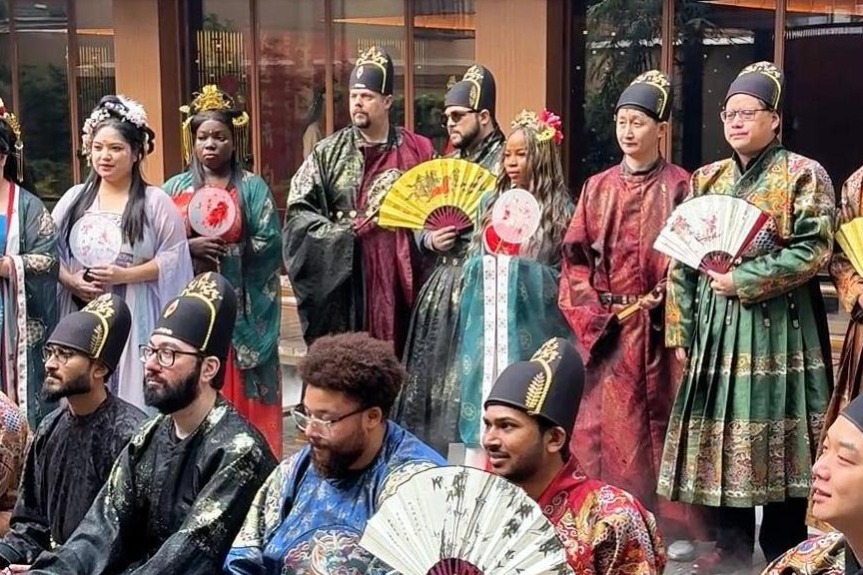Tracing thread of continuity in Chinese governance system


The year 221 BC was very important. This was the year when Qinshihuang established a centralized, unified, multiethnic dynasty and became the first emperor in Chinese history.
He abolished the earlier hereditary vassal enfeoffment system and set up prefectures and counties across the country, which exerted a profound influence on the political systems of China over the following 2,000 years, says Xia Chuntao, director of the Institute of Modern History at the Chinese Academy of Social Sciences.
Ancient China's governance systems developed rapidly afterward, building up centuries of experience. Some scholars have paid particular attention to this field in their work.
The results of their studies have been published in Research on Chinese Governance System in Past Dynasties, a book highlighted by CASS as an important research achievement in the interpretation of modern Chinese civilization, at a news conference in Beijing on Jan 18.
According to Xia, who is also the chief author of the book, this compilation is the result of a major four-year academic program which started in 2019. Altogether, 12 scholars took part to complete the work of 1.06 million words.
"This book elaborates on the practice of ancient China's political governance systems. We not only wanted to show how ancient people thought and designed systems, but also how they implemented them, what the results were, and how they made adjustments," says Xia.
Moreover, the book aims to help people get some historical experience in this field and provide reference for efforts to modernize the system and capacity for governance today, says Guo Jianhong, deputy director at the scientific research bureau of the CASS.
The book has 11 chapters, discussing issues such as "administration and supervision", "central and local governance", "people-oriented governance and people's livelihood", "thought and culture", "rule of rite and rule of law", "border governance" and "religious governance".
According to Xia, the book covers governance systems from the Qin (221-206 BC) to Qing (1644-1911) dynasties, which is unusual in previous studies.
Based on their studies, the contributing scholars point out the main characteristics of ancient China's governance systems: with centralization as the main system, the ancient Chinese advocated the unity and solidarity of the country, regarded Confucianism as the guiding ideology and stressed adaptation to the times and making innovations to improve the system.
"We believe that in ancient China, given numerous challenges, such as the vast territory, diverse ethnic groups, and the need to formulate governance theories, it was crucial for the central government to have power and authority," says Xia.
"Without authority, the central government would not be able to effectively integrate resources. On the contrary, the central government could leverage the advantages of a unified system and collective efforts to accomplish major tasks, effectively promoting socioeconomic development," he adds.
According to Xia, the governance practice of ancient China faced particular difficulties. "For example, throughout history, China's population has comprised a large proportion of the global population, about 20 to 30 percent on average. It was very difficult to support so many people with limited cultivated fields."
But China has a civilizational history of more than 5,000 years, which means Chinese people have over 5,000 years of governance experience. According to Xia, such abundant governance experience is unparalleled.
He also mentions one particular achievement of China's governance practice over such a long span of time. "In ancient China, although there were instances of social unrest due to misgovernance, there were also periods of good governance and social stability. Despite these downs, the general trend has been upward, with the country achieving continuous development and progress," says Xia.
"With our governance theories and designs, the Chinese people have made numerous inventions in this field, which have contributed to the glories of Chinese civilization and made outstanding contributions to the development of world civilization," he adds.





































